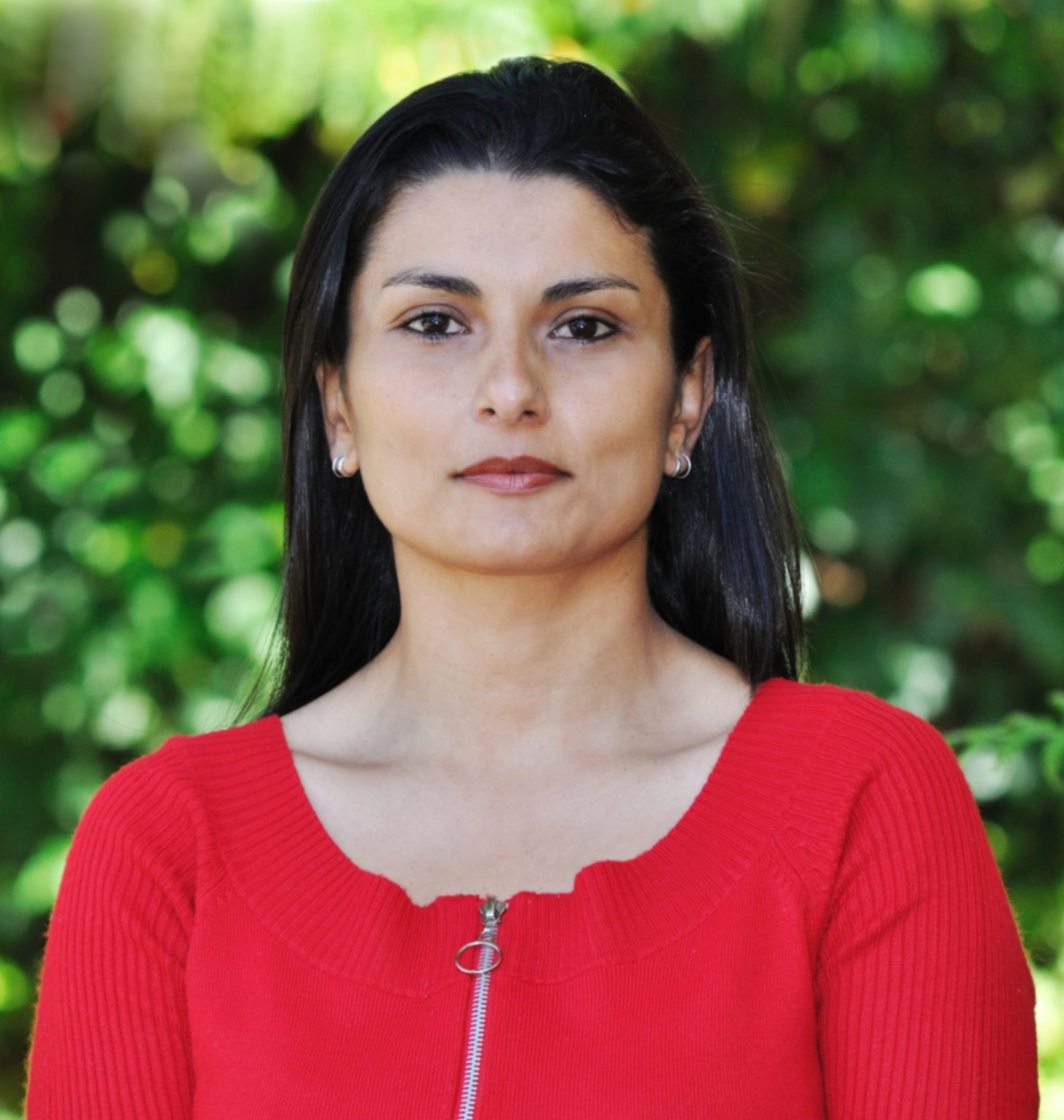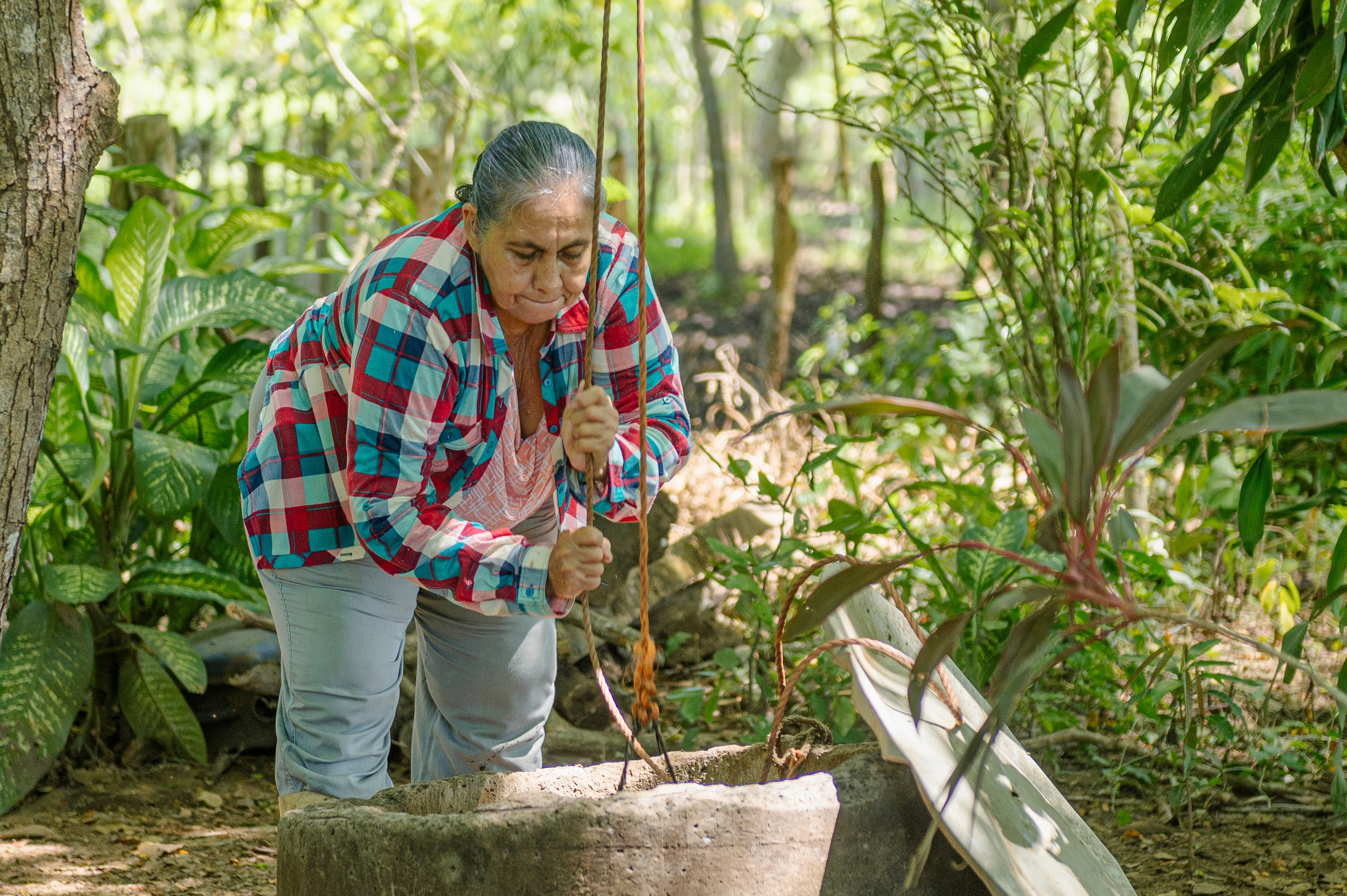
Despite facing significant barriers, rural women play an increasingly central role in Costa Rica’s agriculture sector, making key contributions to sustainable farming and livestock management.
The SCALA programme, co-led by FAO and UNDP, recently convened with three Costa Rican experts —Sylvia Chaves Acuña (Gender Specialist, FAO), Rafaella Sánchez Mora (Senior Specialist in Gender Equality and Women's Empowerment, UNDP), and Katherine Fernández Rojas (Gender Equality Associate, UNDP)— to get their insights on how to advance gender equality and climate resilience in agriculture in Costa Rica and beyond. Their perspectives highlight how targeted interventions, such as those under the SCALA programme, and collaborative efforts are driving sustainable development and elevating women’s roles in the livestock sector.
***
What role do rural women play in Costa Rica's agriculture sector, and what challenges do they face in the context of climate change?
 Rafaella Sánchez Mora: Rural women in Costa Rica are crucial to agriculture and climate action. Although they represent only 15.6 percent of agricultural producers and manage just 8.1 percent of agricultural land, their expertise in wildlife management, plant genetics, and sustainable practices is indispensable. For example, women herders are essential for sustainable livestock production, which is key for climate adaptation action in Costa Rica.
Rafaella Sánchez Mora: Rural women in Costa Rica are crucial to agriculture and climate action. Although they represent only 15.6 percent of agricultural producers and manage just 8.1 percent of agricultural land, their expertise in wildlife management, plant genetics, and sustainable practices is indispensable. For example, women herders are essential for sustainable livestock production, which is key for climate adaptation action in Costa Rica.
However, the important contributions made by women are often overlooked due to many inequalities, including limited access to resources and opportunities. And the impacts of climate change compounded by the aftermath effects of the COVID-19 pandemic have disproportionately affected already vulnerable rural women.
Only 3.1 percent of women-led farms receive technical assistance, and only 38.4 percent of women’s organizations can access credit, compared to 61 percent of organizations led by men. Additionally, 82 percent of women’s organizations operate informally, reflecting deep-seated gender stereotypes. Women also spend over twice as much time on domestic work and childcare compared to men, which restricts their economic opportunities.
How do Costa Rica’s national climate policies support gender equality in the agriculture sector? And what are some examples of successful initiatives?
Rafaella Sánchez Mora: Costa Rica has made significant progress in integrating gender equality into its national climate policies by aligning with international human rights standards and addressing the needs of women in agriculture. In 2016, the country advanced women's participation in climate policy through initiatives like the Livestock NAMA, which included specific support for women in the livestock sector.
In 2018, the National Policy on Adaptation to Climate Change incorporated gender and human rights perspectives to strengthen climate adaptation in agriculture, further addressing the distinct impacts of climate change on various groups.
Looking ahead, the implementation of the Nationally Determined Contribution will monitor and promote gender equality and the inclusion of marginalized groups across climate sectors by 2030. Complementing these efforts, training programs are planned to address the varied impacts of climate change on these groups. Additionally, the Gender Equality Policy for Inclusive Development in the Agricultural Sector (2020-2030) focuses on improving women’s access to resources and enhancing their capacity to adapt to climate impacts.
Most recently, in 2023, Costa Rica introduced the National Action Plan on Gender Equality in Climate Action, which emphasizes multisectoral strategies like employability, economic autonomy, and capacity building, while further integrating gender perspectives into climate actions.
How do collaborative efforts among various stakeholders contribute to advancing gender equality in agriculture?
 Katherine Fernández Rojas: In Costa Rica, advancing gender equality in agriculture is supported through coordinated efforts among government institutions, NGOs, international organizations, and the private sector. These combined efforts help improve women’s productivity, foster inclusivity, and advance sustainable agricultural development.
Katherine Fernández Rojas: In Costa Rica, advancing gender equality in agriculture is supported through coordinated efforts among government institutions, NGOs, international organizations, and the private sector. These combined efforts help improve women’s productivity, foster inclusivity, and advance sustainable agricultural development.
A notable example of effective collaboration is the Joint Programme “SDG Fund”, implemented by UNDP, FAO, the International Labour Organization, and UN Women. This initiative supports women from vulnerable groups—such as indigenous, rural, Afro-descendant, and coastal communities—by promoting socio-productive activities. It also strengthens collaboration among government, NGOs, the private sector, and international partners, boosting women's roles and profits in livestock, fostering a fairer business environment, and driving cultural and systemic change.
And, of course, the SCALA programme is another collaborative effort, where private and public actors are deepening the evidence on women’s roles in livestock to improve climate planning and implementation in that sector.
How exactly has SCALA contributed to addressing the challenges faced by women in Costa Rican agriculture?
 Sylvia Chaves Acuña:SCALA addresses the specific needs and experiences of rural women in Costa Rica, ensuring that the solutions developed are relevant and effective, tailored to their real conditions. A central focus of the programme’s approach is to amplify women’s voices, which remains a revolutionary act, allowing them to define their roles and contributions in agriculture. Despite often not owning productive assets, women are essential to farm operations and handle extensive responsibilities, leading to long working days that blend both farm and domestic duties.
Sylvia Chaves Acuña:SCALA addresses the specific needs and experiences of rural women in Costa Rica, ensuring that the solutions developed are relevant and effective, tailored to their real conditions. A central focus of the programme’s approach is to amplify women’s voices, which remains a revolutionary act, allowing them to define their roles and contributions in agriculture. Despite often not owning productive assets, women are essential to farm operations and handle extensive responsibilities, leading to long working days that blend both farm and domestic duties.
According to the OECD’s study "Gender Equality in Costa Rica," women spend 23 additional hours per week on unpaid domestic compared to men. The Central Bank also estimated that in 2022, the value of unpaid domestic work was 9.6 trillion colónes, equivalent to 21.4 percent of the country’s Gross Domestic Product.
SCALA supports the formulation of public policies and initiatives that aim to reduce such gender disparities and enhance the development and well-being of women and their families in agriculture. Understanding their realities allows for the design of policies that not only reflect their needs but also address inequality gaps and support their development.
What is the focus of the SCALA programme's 'Gender Equality and Social Inclusion Strategy' in Costa Rica, and what impacts have been observed since its implementation?
Sylvia Chaves Acuña and Katherine Fernández Rojas: SCALA’s 'Gender Equality and Social Inclusion Strategy' in Costa Rica initially focused on understanding the experiences of women in livestock farming. This involved conducting an "Analysis of the Situation of Livestock Women in Costa Rica", a pioneering study that involved women directly and helped identify gender gaps and obstacles to women’s full participation in the sector.
The analysis revealed that only 42 percent of women own the land they work on, which limits their access to credit and restricts their participation in sectoral discussions. Additionally, most women manage less than 20 hectares and own fewer animals compared to men. Economic challenges are also significant, with 85 percent of women receiving no financial compensation for their farm work, which forces them to seek additional income outside livestock production and increases their overall workload. The study also found that 77 percent of women require more training, and 75 percent are not engaged in relevant programs tailored to their needs. Furthermore, only 16 percent of women hold positions on the boards of livestock organizations, with their involvement often constrained by discriminatory practices and domestic responsibilities.

Based on the findings of the analysis, SCALA developed a three-year action plan to address gaps in skills and resources and to support women in navigating climatic, productive, social, economic, and family challenges in the livestock sector. The plan has already led to greater visibility of women’s roles and challenges in livestock farming and promoted more inclusive practices within the sector.
What are the next steps to further promote gender equality and sustainable development in Costa Rica livestock farming?
Sylvia Chaves Acuña: The "Analysis of the Situation of Livestock Women in Costa Rica" offers essential insights into the challenges faced by women in the sector. The Ministry of Agriculture and Livestock is preparing to use this report to secure finding to strengthen the NAMAs, including those for livestock farming.
FAO and UNDP are assisting the Ministry of Agriculture and Livestock with the evaluation of the Gender Equality Policy's current Action Plan (2020-2023) and the development of Plan II. This partnership presents a valuable opportunity to advocate for measures that ensure equitable participation of women in livestock farming, shifting from viewing gender equality as a project requirement to integrating it as a core legal, social, and moral obligation.
The next steps involve linking the action plan with ongoing FAO and UNDP projects, securing funding, and coordinating with the private sector, the Costa Rican National Livestock Programme, Livestock NAMA, academic institutions, and other cooperation agencies.
***
Relevant links and publications
- Learn more about the FAO UNDP SCALA programme's gender approach and activities in different SCALA countries.
- Analysis of the Situation of Women Livestock Farmers in Costa Rica- Executive Summary
- SCALA gender and Social Inclusion Strategy
